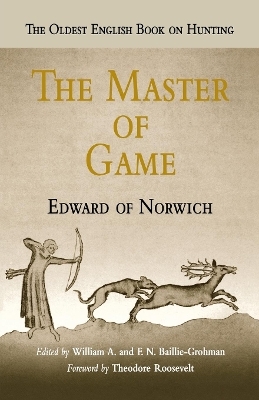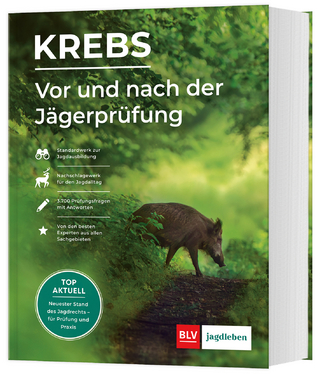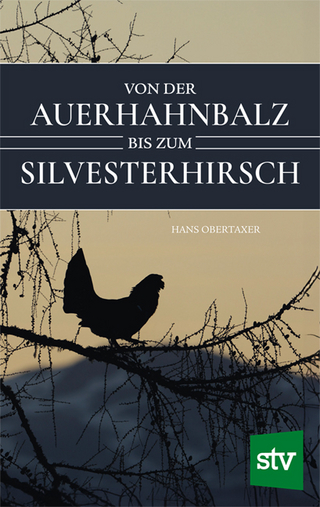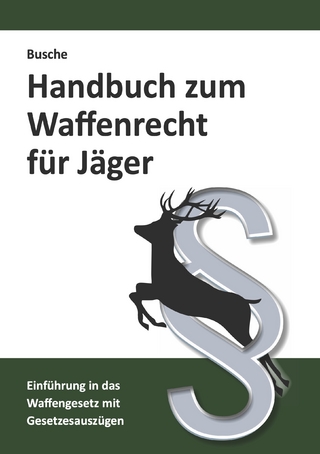
The Master of Game
University of Pennsylvania Press (Verlag)
978-0-8122-1937-1 (ISBN)
The Master of Game is the oldest and most important work on the chase in the English language. Based primarily on Gaston de Foix's Livre de chasse, originally composed in 1387, The Master of Game was written by Edward of Norwich at his leisure between 1406 and 1413, mostly while being held prisoner for having treasonous designs against his cousin, Henry IV. While much of the book is almost an exact translation of de Foix, Edward added five chapters of his own to form the major source for our knowledge of the medieval hunt.
The book begins with a description of the nature of popular quarry, such as the hare, deer, and badger, including their behavior, characteristics, and even smells, and then moves to a discussion of various hunting dog breeds and how to train them. The medieval chase was a ritual event, so the book continues with an explanation of the various rules and techniques for a successful hunt, including how food was to be distributed among the hunters, the support persons, and the dogs. Weapons and traps of choice are also described, as well as the different horn calls used for communication. The Master of Game is a unique text for naturalists, hunters, and persons interested in social history. Although hunting is nowadays far removed from most people's experience, it was of major interest in the time of Edward of Norwich for ritual, sport, and, of course, food. Some knowledge of the chase was essential for all persons of medieval times.
This edition, the first paperback ever of the original version edited in 1909, includes a hearty foreword by Theodore Roosevelt, who adds some important contextual information about the chase and draws on his own vast hunting experience. A delight to read, even for those who are not keen on the sport, The Master of Game has, as one review exclaimed," all Chaucer's freshness, love of the open sky and fragrant woodland."
Edward of Norwich, Second Duke of York (1373?-1415) was cousin of King Richard II and became a supporter of the House of Lancaster in 1399. He was killed at the Battle of Agincourt. William A. Baillie-Grohman (1851-1921) was an outdoor writer, adventurer, and explorer who spent much of his life developing business interests in British Columbia, Canada. Florence Nickalls Baillie-Grohman was often his collaborator. Theodore Roosevelt (1858-1919), the twenty-sixth President of the United States, was an avid outdoorsman and wrote extensively about the wilderness and big-game hunting.
List of illustrations
Introduction
Foreword, by Theodore Roosevelt
Ch. I. The prologue
Ch. II. Of the hare and of her nature
Ch. III. Of the hart and his nature
Ch. IV. Of the buck and of his nature
Ch. V. Or the roe and of his nature
Ch. VI. Of the wild boar and of his nature
Ch. VII. Of the wolf and of his nature
Ch. VIII. Of the fox and of his nature
Ch. IX. Of the grey (badger) and of his nature
Ch. X. Of the (wild) cat and its nature
Ch. XI. The otter and his nature
Ch. XII. Of the manner and habits and conditions of hounds
Ch. XIII. Of sicknesses of hounds and of their corruptions
Ch. XIV. Of running hounds and of their nature
Ch. XV. Of greyhounds and of their nature
Ch. XVI. Of alauntes and of their nature
Ch. XVII. Of spaniels and of their nature
Ch. XVIII. Of the mastiff and of his nature
Ch. XIX. What manner and condition a good hunter should have
Ch. XX. How the kennel for the hounds and the couples for the raches and the ropes for the lymer should be made
Ch. XXI. How the hounds should be led out to scombre
Ch. XXII. How a hunter's horn should be driven
Ch. XXIII. How a man should lead his groom in quest for to know a hart by his trace
Ch. XXIV. How a man should know a great hart by the fumes
Ch. XXV. How a man should know a great hart by the place where he hath frayed his head
Ch. XXVI. How the ordinance should be made for the hart hunting by strength and how the hart should be harboured
Ch. XXVII. How a hunter should go in quest by the sight
Ch. XXVIII. How an hunter should go in quest between the plains and the wood
Ch. XXIX. How a hunter should go in quest in the coppice and the young wood
Ch. XXX. How an hunter should go in quest in great coverts and strengths
Ch. XXXI. How a hunter should quest in clear spires and high wood
Ch. XXXII. How a good hunter shall go in quest to hear the harts bellow
Ch. XXXIII. How the assembly that men call gathering should be made both winter and summer after the guise of beyond the sea
Ch. XXXIV. How the hart should be moved with the lymer and run to and slain with strength
Ch. XXXV. How an hunter should seek and find the hare with running hounds and slay her with strength
Ch. XXXVI. Of the ordinance and the manner of hunting when the king will hunt in forests or in parks for the hart with bows and greyhounds and stable
| Erscheint lt. Verlag | 15.10.2005 |
|---|---|
| Co-Autor | Theodore Roosevelt |
| Zusatzinfo | 24 illus. |
| Verlagsort | Pennsylvania |
| Sprache | englisch |
| Maße | 127 x 191 mm |
| Themenwelt | Sachbuch/Ratgeber ► Freizeit / Hobby ► Angeln / Jagd |
| ISBN-10 | 0-8122-1937-6 / 0812219376 |
| ISBN-13 | 978-0-8122-1937-1 / 9780812219371 |
| Zustand | Neuware |
| Haben Sie eine Frage zum Produkt? |
aus dem Bereich


